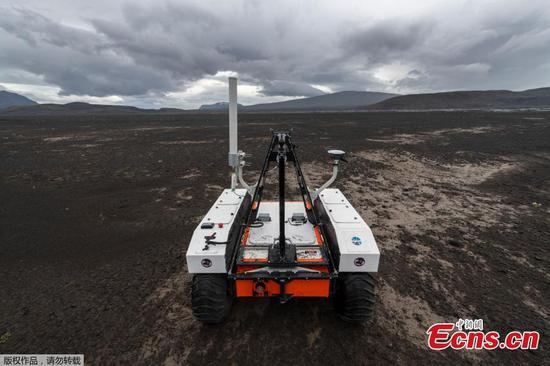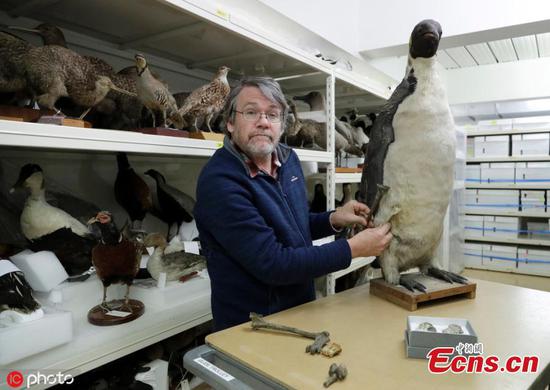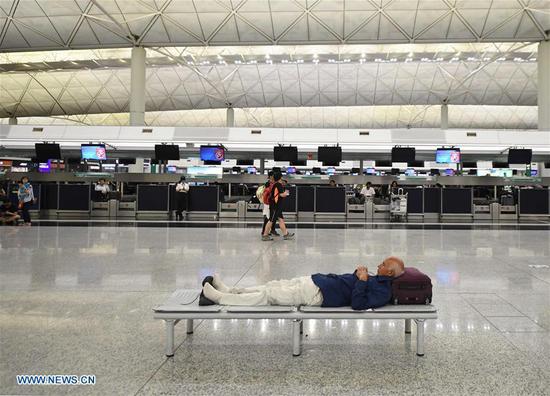Boeing Co has pushed back the entry into service of an ultra-long-range version of its forthcoming 777X widebody, the U.S. planemaker said on Wednesday, marking the latest fallout from an ongoing crisis surrounding its 737 MAX jet.
The fresh delay comes as Boeing's money-spinning 737 MAX single-aisle entered its six month of grounding in August, and as the world's largest planemaker grapples with engine delays on its 777X widebody, pushing the 777-9's first flight into 2020.
The delay for the longer-range 777-8 will hamper Boeing's ability to provide an aircraft on schedule for Qantas Airways' 21-hour, non-stop Sydney-London flight plan.
The Australian airline had hoped to make its first deliveries of the planes in 2022, and to launch the world's longest commercial flight in 2023.
"We reviewed our development program schedule and the needs of our current 777X customers and decided to adjust the schedule," Boeing spokesman Paul Bergman said by email, adding that the manufacturer remained committed to the 777-8.
"The adjustment reduces risk in our development program, ensuring a more seamless transition to the 777-8. We continue to engage with our current and potential customers on how we can meet their fleet needs. This includes our valued customer Qantas."
The Air Current website first reported the delays, saying the 350-seat 777-8 model revised for ultra-long-range flights had originally been scheduled to enter service in 2022 after the arrival of the 777-9 in 2020.
The decision effectively means Boeing engineers have frozen development work on the ultra-long-range version of the 777X. The schedule delay could jeopardize competition with European arch-rival Airbus SE for a slice of the ultra-long-haul travel market.
Airbus, which is offering an ultra-long-range version of its A350-1000, and Boeing have already submitted their "best and final" offers to Qantas for planes capable of flying the 17,000-kilometer Sydney-London route, a Qantas spokesman said.
"We still expect to make a decision by the end of this calendar year," he said.
Boeing's proposal included a "compelling option" to help deal with the 777-8 delay because it was keen to the stay in the race, according to a source with knowledge of the matter who was not authorized to speak publicly.
An Airbus spokesperson said details of its discussions with Qantas remained confidential, but that the A350 was a "perfect solution" to meet the airline's needs.
Lost crown
Boeing Co delivered 38 percent fewer planes in the first seven months of 2019 than the same period of the previous year, as the grounding and doubts surrounding the future of its best-selling 737 MAX jet have hurt operations.
Deliveries totaled 258 aircraft in the first seven months through July, compared to 417 last year, and trailing far behind the 458 aircraft handed over in the same period by European rival Airbus SE.
The numbers put Boeing on course to lose the world's biggest planemaker crown, which it has held uninterrupted for seven years.
The 737 MAX was grounded worldwide following two fatal accidents that killed more than 300 people, and both Boeing and associated airlines continue to extend their timelines for when it will return to service.
Last month, the company posted its largest-ever quarterly loss due to the spiraling costs of resolving issues with the MAX, warning it may have to halt production of the grounded jet altogether if regulators around the world do not clear it for flight again soon.
A new problem identified with the MAX in June has delayed the aircraft's reentry into service until the end of September at the earliest, disrupting schedules for airline operators, who have demanded compensation from Boeing for their loss.
One major client, Southwest, has already removed the MAX from its schedules until early January.
The U.S. planemaker is still ahead of Airbus on combined deliveries of its widebody jets, the 777 and 787 Dreamliner, the numbers of which respectively stood at 24 and 90, through the first seven months of 2019, compared with 25 and 80 a year earlier.
Airbus delivered 60 of its widebody A350 jets, up from 46 planes a year earlier. Both Boeing and Airbus have seen deliveries of their four-engine jumbo jets shrink in recent years as airlines prefer modern, fuel-efficient twin-engine passenger jets.
Boeing said that deliveries of its iconic 747 four-engine jets were flat at four, behind its European competitor Airbus' superjumbo A380, which saw deliveries fall to five, from seven last year.
Boeing's net orders after cancellations were a negative 88 aircraft thus far in 2019.


















































